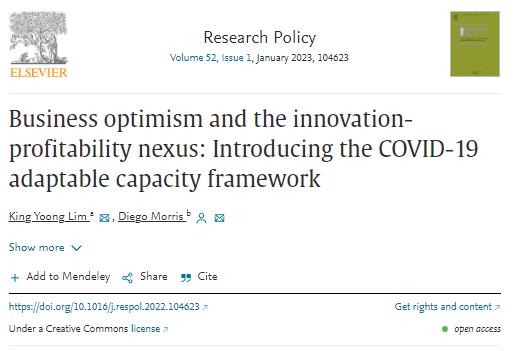A paper titled "Inventory-Responsive Donor Management Policy: A Tandem Queueing Network Model", co-authored by XJTLU International Business School Suzhou (IBSS) academic staff Dr. Nicholas Yeo, was recently accepted by Manufacturing & Service Operations Management, one of the top operations management journals worldwide.
The paper investigates how to improve the management of blood donation operations by proposing a novel model to optimise incentivisation schemes by taking into account random demand, blood perishability, observation periods between donations, as well as variability in donor arrivals and drop-outs. The optimisation model simultaneously accounts for changes within the blood inventory and donor donation process by depicting these as a coupled queueing network. Numerical results demonstrate the advantages of the optimised policy by comparing it with the commonly adopted and studied threshold policy. Their optimised policy has been shown to effectively reduce both shortages and wastage.
Moreover, their model is the first to operationalise a dynamic donor incentivisation scheme, by determining the optimal number of donors required to receive each type of incentive and thereby respond to changes in demand. If adopted by blood donation schemes, this new incentive system could go on to directly save lives by reducing overall occurrence of shortages and providing relief during critical blood shortages.
Dr. Yeo has been a regular blood donor since the age of 18. Sharing about the motivations behind the work, he explained “ever since I started donating blood, I have often received calls to donate, especially during critical inventory shortages. However, due to the safety window I must observe between my donations, I was not always unable to help with these shortages. Hence, I figured I could contribute to the blood donation system in other ways, which led me to this research idea".
In this paper, the novel pipeline-queue technique was adopted to model the dynamics of the blood donation process, accounting for the perishable nature of the blood inventory while simultaneously modelling the safety observation window required for all donors. Dr. Yeo went on to note that, “In practice, blood banks rely heavily on a pool of donors, especially during shortages. However, in our model, we propose to incentivise the corresponding group of donors within the donor pool based on inventory levels. Specifically, during high inventory levels, blood banks can target low-responsive donors to hedge against shortages. Similarly, during shortages, blood banks can incentivize high-responsive donors to close the gap for demand.”
Numerical results demonstrate the advantages of the optimal policy by comparing it with the commonly adopted and studied threshold policy. The optimal policy can effectively reduce both shortages and wastage.
Regarding the practical application of the model in the future, Dr. Yeo and his team have been in discussions with a number of Singapore blood agencies working in both blood inventory management and donor recruitment. He hopes that they can test the model during the targeted recruitment of donors based on inventory levels. The application of the model could not only improve the existing problems in blood donation but also meet the growing needs of an ageing population.

Dr. Nicholas Yeo is an Assistant Professor in the Department of Intelligent Operations and Marketing at Xi'an Jiaotong-Liverpool University (XJTLU). He obtained both his Ph.D. in Operations Management and MSc in Management from Singapore Management University. His research interests lies in healthcare operations, humanitarian operations, behavioural operations, and supply chain management.
Manufacturing & Service Operations Management is the top peer-reviewed academic journal in operations management, and one of the UTD-24 journals. It publishes theoretical and practical research in the field of operations management in the manufacturing/service industry. It is widely recognised within the global operation management community.
Over the past year, IBSS scholars have published a number of papers in leading international academic journals at the UTD-24, FT-50, and ABS 4/4* levels, including Management Science, Journal of Finance, Journal of Operations Management, Information System Research, Production and Operations Management, Journal of Financial and Quantitative Analysis, Research Policy, Journal of World Business, Journal of Travel Research, Journal of Retailing, Human Resource Management, etc., and have been awarded important research project grants by the National Natural Science Foundation of China and the Humanities and Social Science Foundation of the Ministry of Education. XJTLU IBSS is well on its way to becoming a top-quality research-oriented business school.











